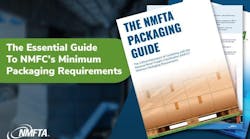All trucking eyes are on Texas, hoping that it won't be an omen of things to come in the world of diesel fuel. In October, fuel pumps in the Dallas-Fort Worth area will start dispensing low-emissions diesel to help the region reduce smog in compliance with the Clean Air Act. Taken alone, this event would not be notable. However, it may be further indication of a growing trend that could lead to fuel shortages, price spikes and higher all-around diesel prices.
Auto drivers around the country now encounter about 20 different types of gasoline, blended in various configurations to help reduce air pollution in certain regions. For most drivers, buying and using these “boutique fuels” is of little consequence, except when spot shortages lead to price spikes — a condition that is occurring with increasing frequency.
For fleets, however, slight changes in pump price can mean the difference between profit and loss. Industry leaders are concerned that although less than a half-dozen different boutique diesel fuels, including biodiesels, are sold throughout the country, that number could grow rapidly and lead to temporary shortages. “There's always pressure on states to find further emission containment methods,” says Rich Moskowitz, assistant general counsel at the American Trucking Assns.
The trend has prompted the group to ask for relief. In a letter sent in early June to Dept. of Energy Secretary Samuel W. Bodman, ATA president Bill Graves said: “The ongoing proliferation of so-called boutique fuels adds to the complexity and costs of diesel fuel refining. The trucking industry believes that a single national diesel fuel standard is the best way to ensure an adequate, uninterrupted supply of this commodity.”
California truckers witnessed the problem first-hand when the state switched to CARB (California Air Resources Board) Diesel during the mid 1990s. Not only did the California Trucking Assn. receive almost a thousand calls a day during the first week about poor engine performance — which was eventually fixed by introducing additives — but efficiency dropped and the price went up. “We said it would raise the cost about 20 cents to 25 cents a gallon. CARB said it would be about 5 cents,” says Greg Owen, then president of the trucking organization. “The price difference is now 40 cents higher than in [neighboring] Arizona because there are only about four refineries in the state making the blend.”
Owens says California saw an exodus of truckload carriers, and those that have stayed can only charge the national average fuel surcharge, instead of the higher, more realistic California rates. Owen, who is head coach and CEO of Ability/Tri-Modal Transportation in Carson, says, “CARB diesel is not only more expensive, but lowers efficiency by 20% to 30%. We're going to lose customers unless we can get the California surcharge.”
Congress may help. An amendment limiting the number of boutique fuels is in the mammoth energy bill now winding its way through Congress. Separate bills to stop boutique fuel proliferation also have been introduced.
Standards-setting groups are weighing in, too. Currently, ASTM is working on a standard for B20 (20% biodiesel) fuel. Although it does not address regular diesel, it could keep the number of biodiesel fuels down because states often adhere to ASTM standards.
“We recognize the potential for boutique fuel proliferation,” says Reg Modlin, director of environmental Affairs for DaimlerChrysler. “If we can get ahead of the biodiesel boutique fuel curve, we're going to be better off. Perhaps we can at least harmonize the biodiesel side of diesel fuel.”
Any standards are positive news as Minnesota prepares this summer to become the first state to mandate that diesel fuel contain 2% biodiesel, or B2. Although the blend will aid the local agricultural economy and help stem air pollution, it could mean more confusion for truckers.


